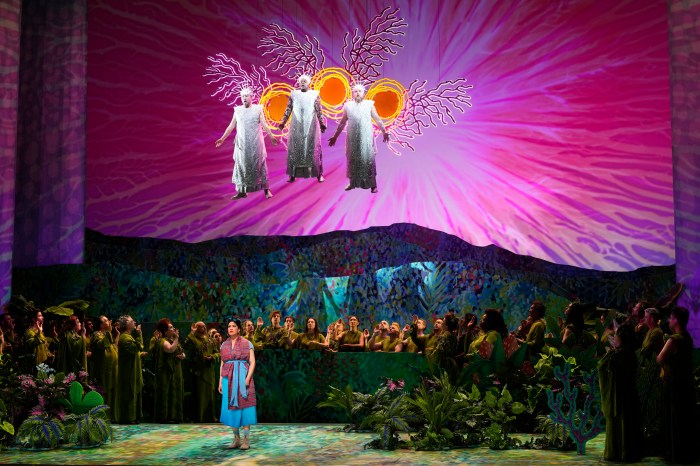The Big Sick
Directed by Michael Showalter
Starring Kumail Nanjiani, Zoe Kazan, Ray Romano, Holly Hunter
Rated R
Playing at AMC Loews Lincoln Square 13, Regal Union Square
Don’t be fooled by the apparent effortlessness that characterizes “The Big Sick,” the seamless ways it interweaves broad comedy and sincere heart-rending drama.
This is not an easy movie to make, period. And it is certainly not one to make as well as what screenwriters Kumail Nanjiani and Emily V. Gordon and director Michael Showalter have pulled off.
It’s a personal story — the script is based on the real-life husband and wife’s own relationship and the terrible medical travails Gordon suffered — and it also weaves in the struggles of cultural differences, an in-depth depiction of the Chicago stand-up scene, excerpts from a one-man show and much more.
Yet “The Big Sick” rarely seems labored or overwrought; save for a couple wrong steps, it’s painstakingly authentic in its evocation of what sometimes feels like the entire conceivable range of emotions.
That’s because Nanjiani, who plays a version of himself, and Gordon are sharp writers with a knack for underpinning deadpan dialogue with understated emotions.
It’s a gift, streamlined by Showalter’s careful direction, that turns their story into a rare phenomenon: a genuinely affecting comedy-drama about how humor serves as an effective defensive mechanism against sorrow and despair.
The movie’s Kumail meets Emily (Zoe Kazan) at a stand-up gig. Their relationship develops and hits a tumultuous patch because of his inability to confront his Pakistani family’s fervent desire that he marry a countrywoman.
Then illness, in the form of a medically-induced coma, sets in and brings to the scene Emily’s parents Terry (Ray Romano) and Beth (Holly Hunter).
The best scenes in the movie depict the bond that develops between Kumail, Beth and Terry, a support network formed out of the intensity of their shared experience. It’s not a familiar dynamic — the estranged boyfriend and parents of a sick woman — and the actors invest a great degree of feeling in it.
Romano in particular stands as a revelation here, in a performance that merits Oscar consideration because it richly captures the feelings of frustration, futility and anger that are familiar to anyone who has helplessly watched a loved one seem to slip away, without ever losing a veneer of sarcastic charm.
This is a movie filled with doctors, hospitals and emergency rooms, with angry fights and joyful connections, with pangs of disappointment and regret and moments of genuine hope. It’s a lot to offer, in some sense the entire tapestry of life distilled into two hours, but in the end that’s really what the movies are for, anyway.

















